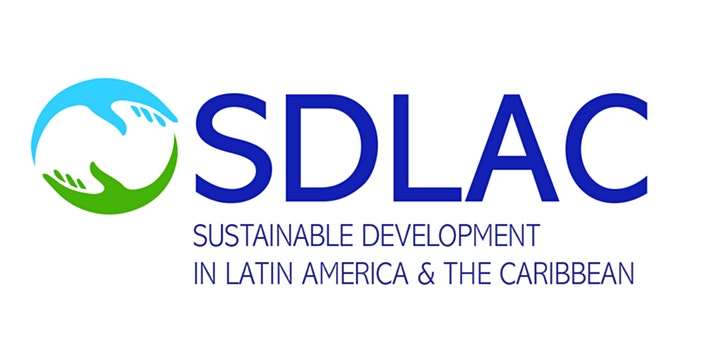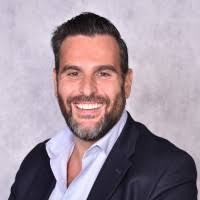PANEL I: CITIES AND URBAN AREAS: ACHIEVING SUSTAINABILITY FOR ALL
Alejandra Kemper
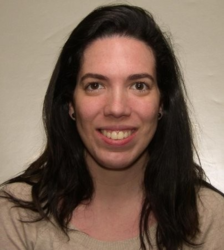
Alejandra is project manager of the project “Asuncion Green City of the Americas – Pathways to Sustainability” funded by the Global Environment Facility (GEF), led by the Ministry of Environment of Paraguay and implemented by UNDP. She is an Environmental Engineer from the Catholic University of Asuncion, and holds a Masters Degree in Environmental Engineering and Sustainable Development from Imperial College London, England and a Specialisation in Environmental Management from the Technical University of Dresden, Germany.
Alejandra has more than nine years experience on natural resources management, climate change and sustainable development. She has worked as an environmental specialist in water and sanitation and infrastructure projects at the national level, as an environmental consultant in the areas of territorial and land-use planning, analysis of environmental and social impacts and climate change in projects from the World Bank, the Interamerican Development Bank, the Japan International Cooperation Agency (JICA) and the United Nations Development Programme (UNDP) and as a university lecturer. She is a member of the International Association for Impact Assessment (IAIA) and the International Water Association (IWA).
Carlos Felipe Pardo
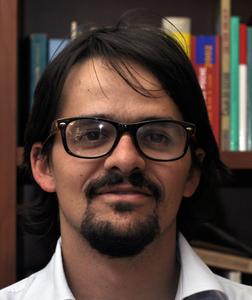
Carlos works in the design and implementation of pilots for NUMO, the New Urban Mobility alliance, hosted by WRI Ross Center for Sustainable Cities. He is a Colombian psychologist with a MSc in Contemporary Urbanism from the London School of Economics. He has worked for development banks, UN agencies and institutions. He founded Despacio.org in 2008, and was its Executive Director until he joined NUMO in 2018.His work has included directing more than 20 projects, spanning the development of a bicycle strategy for cities to the assessment of value capture mechanisms for mass transit and reviewing travel demand management policies in 12 Latin American cities.
Anthony Courreges
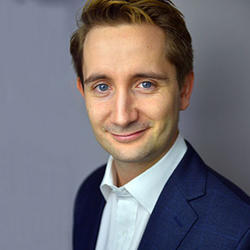
Anthony serves as Clean Transportation Finance Manager for C40’s Financing Sustainable Cities Initiative (FSCI). In this role, Anthony leads the development and successful implementation of a range of city-city interactions and technical assistance on urban transportation finance. He supports city achievements of strong finance-related outcomes, bringing cities together to share experiences and learn from each other to discover new solutions.
Prior to joining C40, Anthony acquired significant experience managing projects in the built environment in Europe and in the United States. Until 2017, he worked in the U.K. as a Senior Sustainability Consultant for Mott MacDonald, where he collaborated with a variety of public and private clients to develop, refine and successfully implement sustainability strategies in the built environment. A Chartered Engineer, Anthony holds a Master’s Degree in Mechanical Engineering and Energy Sciences from Polytech’ Nantes Graduate School of Engineering.
PANEL II: INNOVATIONS FOR SUSTAINABILITY AND SOCIAL CHANGE
Fabián Suárez
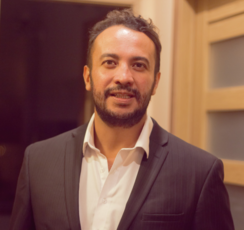
Fabian Suarez is the Managing Director of e.Ray Latam, Co-founder and Board member of e.Ray Europa GmbH as well as the Chairman of the Board of Wamala Energy Ltda, a company based in Uganda.
He is a specialist in sustainable infrastructure using renewable energy systems combined with digital applications (space based applications, IoT). In 2018, he was awarded the title of “Innovator under 35 LATAM” by the MIT Technology Review. As one of the most promising leaders at LATAM he has led projects in East Africa and Latin America, introducing renewable energy and digital applications to rural communities. His projects include a smart river turbine with an integrated satellite-based monitoring system as well as an innovative solar-powered refrigerator technology for the dairy sector.
Fabian Suarez has a M.Sc in Mechanical Engineering from the Technical University of Darmstadt, Germany.
Carolina Zambrano
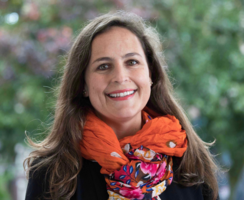
Carolina has over 11 years of experience promoting climate action and sustainability in Latin America, from the public, philanthropic and civil society sectors. Currently, at Hivos, she is Director of the All Eyes on the Amazon Program for Ecuador, Brazil and Peru. She has held leadership positions at the national and local levels in Ecuador, including Vice Minister of Science, Technology and Innovation; Undersecretary of Climate Change; and Director of Environmental Policy of the city of Quito. For 5 years, she was also Responsible for Latin America of the Sustainable Cities program of Avina Foundation. Since 2008, Carolina has combined her professional work with academia, as a lecturer in the Masters Programs in Climate Change and Environmental Negotiations at the Universidad Andina Simón Bolívar. She is a biologist and has a Master’s degree in Public Administration from Harvard University and a Master of Environmental Management from Yale University School of Forestry and Environmental Studies.
Peter A Cabral
Peter is a political scientist working in the intersection between urban mobility, smart cities, and public-private partnerships in infrastructure and public assets. He has focused on leveraging disruptive technologies in the generation of abundance for social, economic and sustainable development. He was responsible for the early deployment of bicycle sharing experiences in Brazil and Argentina. He co-authored a book on the challenges that modern Cities face concerning Urban Mobility, Public Policy, Public Transportation and Smart City Design. Currently, he is a global faculty member at Singularity University on Disruption, Digital Mobility and Future of Cities, as well as a business advisor for startups on these fields. Peter holds a B.A. in Political Science from Northeastern University and an MBA from Universidade Presbiteriana Mackenzie.
PANEL III: AGRICULTURL PRODUCTION: BALANCING GLOBAL MARKETS & LOCAL NEEDS
Deissy Martínez
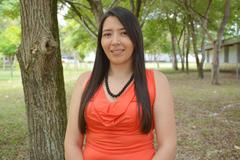
Deissy is the Regional Program Coordinator for CCAFS (Research Program on Climate Change, Agriculture and Food Security) in Latin America based at CIAT (International Center for Tropical Agriculture) in Cali, Colombia. She leads CCAFS research portfolio in the region aiming for bringing more climate services into across scales decision making processes, informing policies and priorities with gender sensitive climate smart agriculture and increasing evidence on low carbon and more resilient agricultural options in the region. In addition, her research on economic impacts of climate change and implications in both challenges and action in rural communities and society is strengthening CCAFS regional research.
Deissy studied Economics and International Affairs and Political Studies at the Nueva Granada Military University and holds an MSc in Rural Development at Pontifical Javeriana University in Colombia. Before joining CCAFS, Deissy was working at the Sustainable Environmental Development Deputy Directorate of the National Planning Department in the Study of Economic Impacts of Climate Change in Colombia developed by the Group of Climate Change.
Peter Rosset
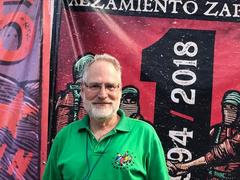
Peter Rosset is Professor of Agroecology at the ECOSUR Advanced Studies Institute in Chiapas, Mexico (http://www.ecosur.mx/academico/prosset/), BPV-FUNCAP Professor at the State University of Ceará (UECE) in Brazil, and is technical staff of the global family farm and peasant movement, La Via Campesina International (https://viacampesina.org/). He is the author of many articles and books, most recently “Agroecology: Science and Politics” (https://fernwoodpublishing.ca/book/agroecology). He is a writer, researcher, teacher and social movement activist on agroecology, food sovereignty, agrarian reform and peasant struggle.
Ashwini Sebastian
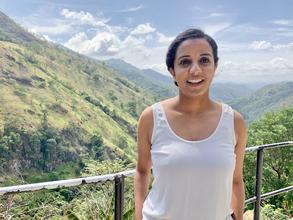
Dr. Ashwini Rekha Sebastian is an Economist at the World Bank, where she works on themes related to agriculture and food systems, environmental conservation, rural livelihoods, jobs and poverty reduction. Her recent operational projects have focused on sustainable productive landscapes, climate resilience, water resilience, renewable energy, value chains and downstream linkages, infrastructure and storage systems, and productive alliances in agriculture in the Latin America region. Her recent research has focused on stochastic and meta frontier analysis linked to productivity, structural transformation and jobs, and labor market integration of migrants and other fragile populations in local economies.
Ashwini holds a PhD in Agricultural and Natural Resource Economics, and a master’s in Economics from the University of Maryland, College Park. Prior to joining the World Bank, Ashwini worked as an Economist at the United Nations Food and Agriculture Organization (UN-FAO) Agricultural Development Economics Division on the Protection to Production (PtoP) team. Here she studied the microeconomic impacts of social protection programs – cash transfers – to vulnerable households in Sub-Saharan African countries, with a focus on gender, labor, child outcomes, and environmental shocks using nationally representative surveys and Impact Evaluations. She previously collaborated with the International Food Policy Research Institute (IFPRI) on research related to environmental migration and labor market integration.
Carmine Paolo De Salvo
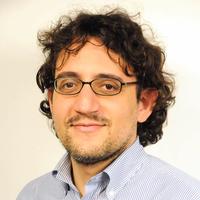
Paolo is a Rural Development Specialist at the Inter-American Development Bank, where at the moment he works on policy and investment loans in the agricultural sector in Haiti, Jamaica, and Peru. In addition, Paolo leads the AGRIMONITOR initiative, which aims to monitor agricultural public policies in Latin America and the Caribbean, using the Producer Support Estimate methodology. Before joining the IDB, Paolo worked in the Agriculture and Rural Development Division of the World Bank and as an ODI Fellow Economist at the Ministry of Finance and Economic Affairs in Zanzibar, Tanzania. Paolo, Italian, studied at the University of Bologna and holds a Master’s Degree in Economics from the London School of Economics.
PANEL IV: LATIN AMERICA AND THE CARIBBEAN OUTLOOK
(Keynote speakers panel, see Keynotes section for bios)
